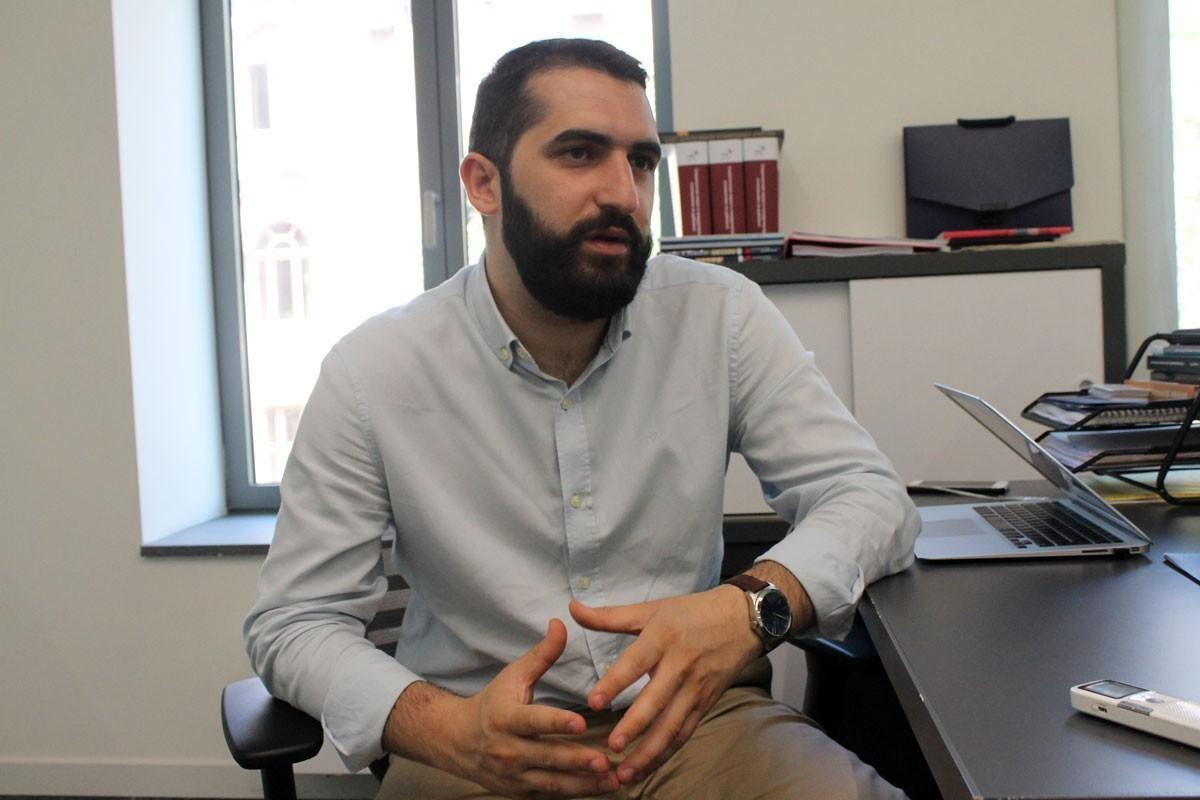
Turkologist Varuzhan Geghamyan: "There has never been a direct military threat to Armenia from Turkey since the 1990s"
Hetq interviews Turkologist Varuzhan Geghamyan
Mr. Geghamyan, after Turkey unconditionally supported Azerbaijan during the July hostilities along the Tavush section of the Armenian border with Azerbaijan, official Yerevan showed its teeth to official Ankara, repeatedly announcing the destructive role of that Minsk Group member and then banning the visit of Turkish military inspectors to Armenia. Even in 2016 after the April fighting, when Turkey again sided with Azerbaijan and there was information about the involvement of its instructors in the fighting, official Yerevan did not take such a position. In your opinion, what are the reasons for the toughening of Armenia's position towards Turkey, and why is it being toughened now?
The main difference between 2016 and today is the Turkish rhetoric.
There has never been a direct military threat to Armenia from Turkey since the 1990s. We have now seen the use of unprecedented rhetoric in both content and style, and this, in fact, suggests that Turkey will seek to be more involved in the region, both in geopolitical and bilateral relations, as well as in conflicts. This open demonstration of Turkey is conditioned by Armenia's very tough response, which, I think, was very appropriate and shows at least that we are dealing with an unbalanced, non-constructive state, which also has no right to be among the eleven Minsk Group states.
You follow the Turkish press and the official news. What was the reaction, in Turkey, to the recent statements of the Armenian Foreign Ministry regarding that country?
Unfortunately, the media in Turkey has long been monopolized, except for a few media outlets representing the opposition or dissidents. The rest is subject to the state. Thus, the theses and rhetoric of the country's top military-political leadership were repeated. Unfortunately, it must be said that the messages of the Armenian side do not always reach the general Turkish public, including the issues raised by you. Thus, we can say that they were not very widespread, except, I think, for one interview with Minister Zohrab Mnatsakanyan given to France 24.
Are the statements about the ‘historical mission’ of Turkey, voiced at the highest level, manifestations of neo-Ottomanism? What is the perception and position of the Turkish society on this ‘mission’?
Well, it can be given different names, be it neo-Ottomanism, Pan-Turkism or anything else, it does not change the content of Turkey's foreign policy.
This policy, both in the past and now, is openly aimed at establishing its own sphere of influence in Turkey's neighboring regions, and the formation of this zone is carried out not only by the soft power today, but also by the use of force itself. Take the military operations in Syria and Iraq, recent Turkish initiatives, and hostilities and other similar events in the eastern Mediterranean basin. And this suggests that we are dealing with Turkey's expansionist policy in the region. It is no secret that Armenia holds a special place in those programs, and, unfortunately, we see that gradually Turkey is talking about it more openly.
The Turkish slogan ‘zero problems with neighbors’ has, in fact, long since exhausted itself. But now these problems also manifest in the form of military conflicts in the Middle East and North Africa. Against this background, Turkey has already turned its back on many countries in the region, including the Christian and Arab worlds. How is this dangerous for that country?
I cannot say what is dangerous for Turkey, but it endangers the relatively fragile peace in the region in general, which Armenia and its partners strive for. I think that in this case, we are dealing with an anti-Turkish axis in the region - Armenia, Egypt, the UAE and other countries, the main task of which should be to curb Turkey's ambitions in this large region.
Can Russia also be a counterbalance to Turkey?
It is a counterbalance. Let’s remember who’s at loggerheads in the north of Syria. It is, in fact, a clash between Russia and Turkey. The same can be said for Libya and so on.
How dangerous is the apparent Russian-Turkish tension for the region?
If we look at the history, we see that there have been many direct and indirect Russian-Turkish wars in this region in the last 200 years. So, we are dealing with a traditional conflict aimed at creating a zone of influence between the two countries. It is obvious that these countries cannot agree on this issue, and others.
There are many more players here, one of the most prominent of which is Iran. At this point, it makes no sense to talk about specific dangers, if we say, in general, that these two countries have always been conflicting parties in the region, and now, when there are not only direct but also hybrid, proxy wars and so on.
In this situation, it is natural that the conflict contains many direct and indirect dangers for Armenia as well.
 Videos
Videos Photos
Photos
Write a comment